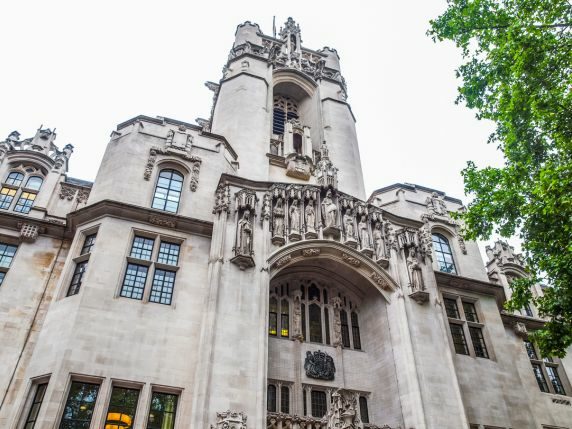After an eight-year-long Court battle involving four High Court rulings, the Supreme Court has finally handed down its judgment in the case of SkyKick UK Ltd vs Sky Ltd. Despite the case settling and the parties requesting that the appeal be withdrawn, the Supreme Court decided that the issues were so significant for brand owners that the judgment should be finalised and published.
The decision answers fundamental questions about the acceptable scope of trade mark protection and the concept of ‘bad faith’ in trade mark registrations. It has the potential to have far-reaching effects on a brand’s approach to trade mark registration and the scope of the trade mark protection they seek.
Here, our expert trade mark solicitors discuss the Supreme Court’s judgment and explain how the decision could impact your business’s brand protection strategy.
What was the dispute about?
Like many big brands, media and telecoms giant Sky adopted a broad-brush approach to trade mark registration, seeking (and obtaining) registrations for many goods and services that were far removed from its core offerings. In doing so, it gained a monopoly over the mark ‘Sky’ in connection with a wide range of goods and services.
Sky is well known for its rigorous brand protection strategy. So, when it became aware of US-based company SkyKick having expanded into the UK, offering email migration and cloud storage solutions under the name ‘SkyKick’, it contacted SkyKick, claiming that its activities amounted to trade mark infringement. Sky’s position was that SkyKick’s visual and phonetic similarities to the trade mark ‘Sky’ ‘meant that consumers would be confused about the origin of the goods and services in question. When SkyKick disagreed, Sky issued court proceedings.
Not only did SkyKick defend Sky’s infringement claims, but it also challenged the validity of Sky’s trade marks, arguing that they had been obtained in ‘bad faith’.
What is bad faith in trade mark law?
The purpose of a trade mark is to act as a badge of origin, informing consumers at a glance where the goods or services they’re looking at come from. Trade marks are not intended to be used by brands for dishonest purposes, like stifling competition. If a brand owner had a dishonest motive for applying for a trade mark, they are said to have made their application in ‘bad faith’.
Trade mark applications made in bad faith will fail. If the trade mark has already been registered, it will be invalidated.
SkyKick alleged that each of Sky’s trade marks, save for those relating to telecommunications and electronic mail services, had been obtained in bad faith. Its argument centred around the point that when Sky applied for the trade marks, it had had no intention of using them in relation to the goods and services covered.
What did the Supreme Court decide?
The Supreme Court overturned the Court of Appeal’s decision in favour of Sky and upheld the High Court’s initial finding that Sky had acted in bad faith.
Following the High Court case, the judge reduced the scope of Sky’s trade marks on the basis that they had been registered in bad faith. He concluded that Sky had been unable to point to any commercial rationale for framing their trade mark applications so broadly, and seemed to have simply adopted a strategy of seeking very wide protection, regardless of whether there was any commercial justification for doing so. He pointed to examples of specific goods, like bleaching preparations, whips, and insulation materials, which Sky had included in its trade mark specifications but which he considered it had no intention of ever using the marks in connection with.
What does the decision mean for brand owners?
It’s natural for business owners to seek the broadest protection possible for their brand. However, the Supreme Court’s decision underlines the need for caution when seeking trade mark protection for goods or services that don’t currently form part of your core offerings and aren’t likely to in the future. Trade marks are intended to protect your brand against copying, and ensure consumers know what they’re getting when they make a purchase. They aren’t intended to be used by businesses to secure a complete monopoly or as a weapon against competitors.
Harper James’ Head of Trade Marks, Ben Evans said:
Brands with a tendency to include unnecessarily broad specifications in their trade mark applications probably need to rethink their strategy in light of this judgment. It is important to put the decision in context. Not only had Sky included goods and services for which it had absolutely no justification in its specifications, but it had also proceeded to, in the words of the Supreme Court, ‘deploy the full armoury of their trade mark rights against another trader’, meaning it based its infringement claim in part on trade mark protection it had no intention of utilising.
Brands should continue to seek comprehensive trade mark protection since it’s central to an effective brand protection strategy. However, they must do so in line with their realistic expansion plans and be able to justify the inclusion of all the goods and services in their specifications should they need to do so.







